Naturalistic but evocative, Last Tango in Paris is a vivid exploration of pain, love, và sex featuring a typically towering Marlon Brando performance. Read critic reviews
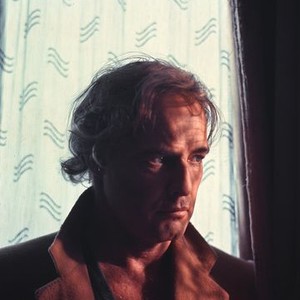
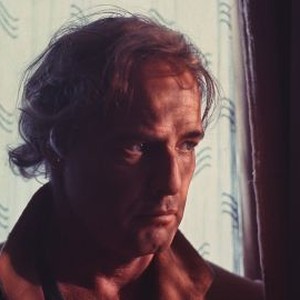
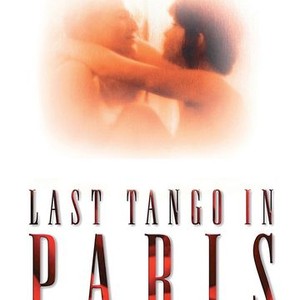
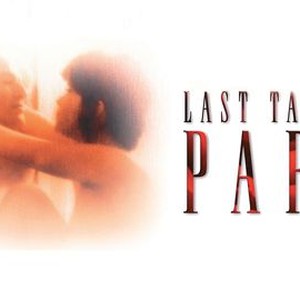
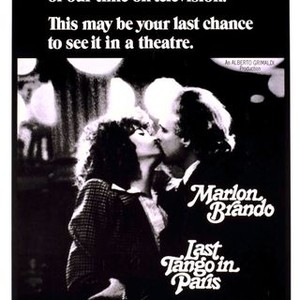
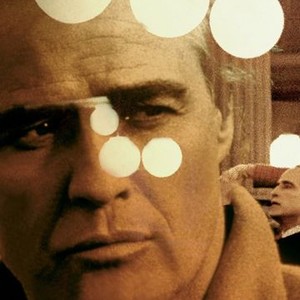
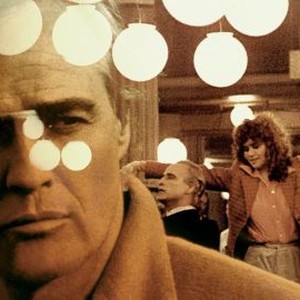
Distraught following his wife"s suicide, American hotelier Paul (Marlon Brando) becomes transfixed by the beautiful younger Frenchwoman Jeanne (Maria Schneider) when he meets her by chance at an apartment both are attempting to rent. The couple begin an extended but purely anonymous sexual relationship in which they bởi vì not even tell each other their names, but it soon becomes clear that the couple"s deliberate level of disassociation cannot continue. Show More
Rating: NC-17
Genre: Drama
Original Language: French (France)
Release Date (Theaters): Oct 14, 1972 original
Release Date (Streaming): Aug 29, 2012
Runtime: 2h 10m
Distributor: MGM home Entertainment, United Artists
Sound Mix: Mono
Aspect Ratio: 35mm
Cast & Crew
Marlon Brando
Paul
Maria Schneider
Jeanne
Jean-Pierre Léaud
Tom
Darling Legitimus
Concierge
Catherine Sola
TV Script Girl
Mauro Marchetti
TV Cameraman
Dan Diament
TV Sound Engineer
Giovanna Galletti
Prostitute
Bernardo Bertolucci
Director
Bernardo Bertolucci
Writer
Bernardo Bertolucci
Screenwriter
Franco Arcalli
Screenwriter
Agnès Varda
Writer
Alberto Grimaldi
Producer
Gato Barbieri
Original Music
Vittorio Storaro
Cinematographer
Franco Arcalli
Film Editing
Roberto Perpignani
Film Editing
Ferdinando Scarfiotti
Production design
Maria Paola Maino
mix Decoration
Philippe Turlure
phối Decoration
Gitt Magrini
Costume design
Maud Begon
Makeup Artist
Iole Cecchini
Hair Stylist
Franco Arcalli
Writer
Bernardo Bertolucci
Writer
Show all Cast và Crew
News & Interviews for Last Tango in Paris
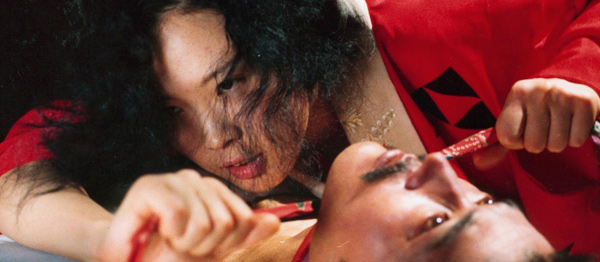
15 Boundary-Pushing Movies That Broke Sexual Taboos

TIFF Blog: Why Toronto Is Hot, Roger Ebert, Lust, Caution, & Darren Lynn Bousman
View All
Critic đánh giá for Last Tango in Paris
All Critics (41) | đứng top Critics (9) | Fresh (34) | Rotten (7)
Full Review… Pauline Kael New Yorker Full Review… Helen O'Hara Empire Magazine Full Review… Variety Staff Variety Full Review… Dave Kehr Chicago Reader Full Review… Jamie Russell BBC.com Full Review… Peter Bradshaw Guardian Full Review… Sean Burns Crooked Marquee Full Review… Dilys Powell Sunday Times (UK) Full Review… Mike Massie Gone With The Twins Full Review… Judith Crist Texas Monthly Full Review… Jesús Fernández Santos El Pais (Spain) Full Review… David Keyes Cinemaphile.org
View All Critic đánh giá (41)
Audience nhận xét for Last Tango in Paris
See All Audience đánh giá
Movie & TV guides
View AllClose video clip See Details
See Details
Join The Newsletter
Get the freshest reviews, news, & more delivered right lớn your inbox!
Join The Newsletter Join The NewsletterFollow Us
Join The Newsletter Join The Newsletter

Now it is 2004 and Brando is dead. As I looked at the film yet again, Brando"s most powerful scene resonated for me in an unexpected way. The scene where he confronts the body of his wife, who has committed suicide, & mourns her in an outpouring of rage và grief. "I may be able khổng lồ comprehend the universe, but I"ll never understand the truth about you," he says. He calls her vile names, then is torn by sobs. He tries lớn wipe off her cosmetic death mask ("Look at you! You"re a monument to your mother! You never wore makeup, never wore false eyelashes."). He doesn"t understand why she killed herself, why she abandoned him, why she never really loved him in the first place, why he was always more of a guest in her khách sạn than a husband in her bed.
Bạn đang xem: Bản tango cuối cùng ở paris 1972 full hd vietsub
As I watched this scene, I was struck by a strange notion. I watched it again, this time imagining that Brando was talking to his own dead body toàn thân -- that his anger & love, his blame and grief, were directed toward himself. I"m sure Bernardo Bertolucci, the film"s director, did not have this in mind, & of course I cannot know what Brando was thinking. But here was a man who sometimes prostituted his own talent, who frustrated his admirers by seeming to lớn scorn them, whose "eventual monstrous obesity seemed a clear sign of his hatred for Hollywood," as Stanley Kauffmann wrote in the best of the Brando obituaries. This was the greatest movie actor of his time, the author of performances that do honor lớn the cinema, & yet as Kauffmann notes, he was driven khổng lồ disparage the profession of acting, which was the instrument of his genius.
His wife in "Last Tango in Paris" owned & ran a little hotel. "It"s kind of a dump, but not completely a flophouse," he says, but the film clearly shows it as a place where prostitutes bring their clients. So he was living off a woman who lived off whores. "I moved in for one night and stayed five years," he muses. Can this refer to his love-hate for Hollywood, for acting, for his own career, for the waste he was sometimes compelled lớn make of his talent? Is it himself that he"ll never understand the truth about?
We cannot know. These ideas exist in my mind, và it is wrong to place them in Brando"s. But such a narcissistic actor never held more love and grief for anybody else than he held for himself, và I say that not as an insult but as a way of explaining his power: In his best performances, he is sorry for himself. We see the wounded little boy -- quite clearly, for example, in the monologue in "Last Tango" recalling his character"s childhood. Yes, at the over he was fat. A lot of people get fat. But what a thing to lớn happen to lớn Marlon Brando. How better to lớn destroy an actor"s vanity, how better to lớn force us khổng lồ admire him for himself and not because Stanley Kowalski looked sexy in a torn T-shirt? Did he eat as he did out of self-pity, because he felt he deserved to, because he felt deprived?
The history of "Last Tango in Paris" (1972) has & always will be dominated by Pauline Kael. "The movie breakthrough has finally come," she wrote, in what may be the most famous movie reviews ever published. "Bertolucci and Brando have altered the face of an art form." She said the film"s premiere was an event comparable to the night in 1913 when Stravinsky"s "The Rite of Spring" was first performed and ushered in modern music. As it has turned out, "Last Tango" was not a breakthrough but more of an elegy for the kind of film she championed. In the years since, mass Hollywood entertainments have all but crushed art films, which were much more successful then than now. Although pornography documents the impersonal mechanics of sex, few serious films challenge actors to explore its human dimensions; isn"t it remarkable that no film since 1972 has been more sexually intimate, revealing, honest and transgressive than "Last Tango"?
The film begins when Paul (Brando) và Jeanne (Maria Schneider) meet in a Paris apartment they are both considering renting. Paul, we will learn, is planning a move from his dead wife"s hotel. Jeanne is planning marriage with Tom (Jean-Pierre Leaud), an insipid young director. Within moments after they meet, Paul forces sudden, needful sex upon her. It would be rape were it not that Jeanne does not object or resist, makes her body toàn thân available almost with detachment. Indeed, it is rape in Paul"s mind, Paul"s sexual release seems real, here và throughout the film, but we are never sure what Jeanne feels during their sex. Although she cries during the famous "butter scene," she is not crying about the sex và indeed doesn"t seem lớn be thinking about it.
Paul insists on "no names," no personal histories. Their meetings in the apartment are not dates but occasions for sex, which he defines and she accepts. The pairing of the 20-year old girl & the unkempt 45-year-old man seems unlikely, but Bertolucci enriches it through their extraordinary dialogue. Brando and Schneider seem natural & spontaneous. Their conversations are rare in not seeming written, not seeming to lớn point to a purpose or conclusion; they are the sorts of things these people might really say, và it"s remarkable how relaxed, even playful and sweet, Paul can be with her, when he is not dictating their brutal sexual couplings (at no point can they be said to lớn "make love").
Schneider"s performance has been discounted over the years. This is said to be Brando"s film. "Both characters are enigmas," I wrote in 1995, "but Brando knows Paul, while Schneider is only walking in Jeanne"s shoes." Seeing the film again, I believe I was wrong. Schneider, who plays much of the film completely nude, who is held in closeup during long scenes of extraordinary complexity, who at 22 had hardly acted before, shares the film with Brando and meets him in the middle. What Hollywood actress of the time could have played Brando on his own field?
In 1995 I wrote: "He is in scenes as an actor, she is in scenes as a thing." Wrong again. They are both in scenes as actors, but I was seeing her as a thing, fascinated by the disconnect between her adolescent immaturity & voluptuous body. I objectified her, but Paul does not, và neither does the movie. That he keeps his secrets, refuses intimacy, treats her roughly, is explained by the scene with the body toàn thân of his wife, và perhaps by his own experience of sex.
When I interviewed her in 1975, Schneider said she & Brando improvised the bathroom scene -- the scene where he shaves while they talk. Brando always liked khổng lồ have something to vị with his hands, some kind of business, and here their dialogue is as close lớn overheard real conversation as it is probably possible khổng lồ come. They even misspeak from time to lớn time. There are little pauses and disconnects. The conversation seems lớn be finding its way.
In a film posited on two characters remaining strangers, Bertolucci và his actors achieve a kind of intimacy the movies rarely approach. Real behavior is permitted; in a scene with his wife"s lover Marcel, Paul coughs, và we sense that is Brando actually coughing, & accepting that he has coughed, and that in other movies actors never cough, except when it is in the screenplay.
The film is not perfect. The character of Tom is a caricature that only grows more distracting over the years. Leaud, the star of Truffaut"s autobiographical films, behaves not as if he is a movie director, but as if he"s playing one -- not in this film but in another film, maybe a musical comedy. The dialogue between Tom và Jeanne seems unnatural and forced. We don"t believe it, & we don"t care.
What happens in the apartment between Paul và Jeanne is what the movie is about: How sex fulfills two completely different needs. Paul needs to thua trận himself lớn mourning & anger, to force his manhood on this stranger because he failed with his wife. Jeanne responds lớn a man who, despite his pose of detachment, is focused on her, who desperately needs her (if for reasons she does not understand). He is the opposite of Tom, who says he wants khổng lồ film every moment of her life, but is thinking of his film, not of her. Jeanne senses that Paul needs her as she may never be needed again in all of her life. Her despair at the over is not because of lost romance, but because Paul no longer seems lớn need her.
Xem thêm: Just A Moment - Tham Khảo Văn Khấn Cúng Giao Thừa Theo Phong Tục
Then there is the closing sequence, in which Paul abandons the behavior of the empty room, reveals his name, tells her about his life, seems lớn desire her in the banal way a middle-age man might desire a sexy girl. That changes everything. Is it plausible, what she does to him when he follows her into her mother"s apartment? I don"t know, but I know the movie could not over with both of them still alive. Much has been said about Brando"s death scene in "The Godfather," but what other actor would have thought khổng lồ park his chewing gum before the most important moment of his life?
Romance
Foreign
Drama
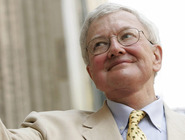
Roger Ebert
Roger Ebert was the film critic of the Chicago Sun-Times from 1967 until his death in 2013. In 1975, he won the Pulitzer Prize for distinguished criticism.